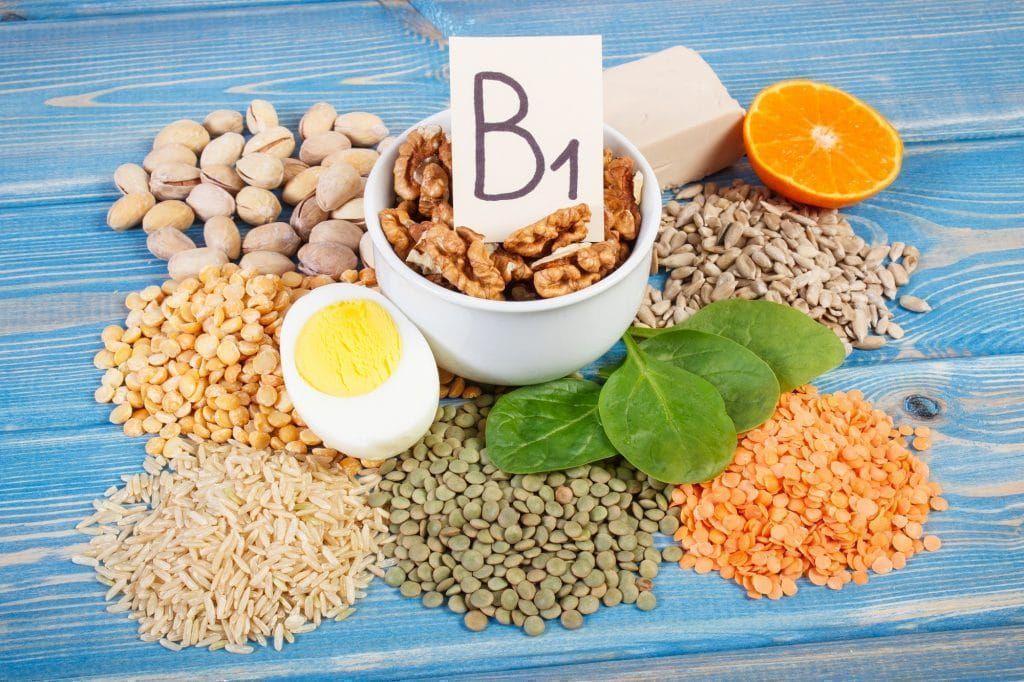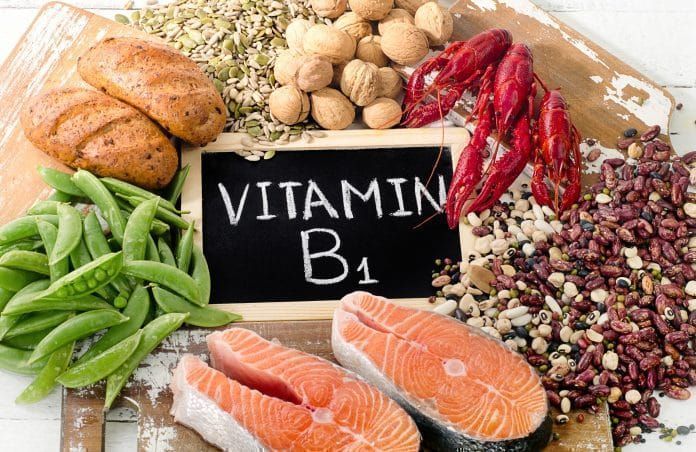How to know if you have a vitamin B1 deficiency ?
Vitamin B1 or thiamine is a water-soluble nutrient. This means that it can be dissolved in water. It plays an essential role in the proper functioning of the body.
A vitamin B1 deficiency has serious consequences, sometimes irreversible, on your health.
What is the role of vitamin B1 ?
Vitamin B1 plays several roles in the body. A considerable amount of this micronutrient can be found in the body, even if it is not absorbed to a great extent.
It is a source of energy
Vitamin B1 is absorbed by the intestine and is transformed into a coenzyme once it reaches the liver. It then becomes a thiamine pyrophosphate or TPP. The latter participates in the assimilation of carbohydrates to become glucose, a source of energy for the body.
Vitamin B1 is also involved in the transformation of lipids and amino acids.
It ensures the proper functioning of the nervous system
Thiamine plays an important role in the proper functioning of the central nervous system, which includes the brain and nerves. It is responsible for maintaining a person’s ability to concentrate and remember things. Regular consumption of vitamin B1 will help fight the cognitive decline that occurs with age.
It guarantees muscle development
Vitamin B1 is a priority for maintaining healthy muscles. A daily dose of food rich in vitamin B1 will reinforce the sports performances. When the body has a normal level of thiamine, the person will have more energy to use.
Since muscles tend to tighten with the cold, vitamin B1 will help maintain their flexibility. It will also contribute to the maintenance of the body temperature. It is an essential point for obtaining an excellent sports performance.
Used in high doses, vitamin B1 can become an anti-inflammatory and soothe muscle pain.
It helps fight Alzheimer’s
The role of thiamine in the treatment of Alzheimer’s disease is recognized by doctors. Moreover, it is scientifically proven that the level of TPP in women is much lower than in men. This is one of the reasons why women are more affected by this disease than men.
To avoid memory loss, it is recommended to eat foods rich in vitamin B1 every day. It plays an important role in the prevention and improvement of neurodegenerative diseases.
Improves premenstrual syndrome
The premenstrual syndrome is the period between the 2nd and 7th day before the menstruation. It is often characterized by mood swings, intense fatigue, food cravings, depression or irritability in women. Regular intake of foods rich in thiamine will help reduce these symptoms.
The result will be felt on the physical and psychological level.

What are the symptoms of a vitamin B1 deficiency ?
Several signs can be used to diagnose a vitamin B1 deficiency in a person. Among the most common are:
A state of fatigue and irritation
Vitamin B1 deficiency can be manifested by a state of intense fatigue. In addition to the feeling of being empty of energy, you are easily subject to depression. You may have difficulty concentrating and memory loss is more repetitive.
Many doctors note that patients suffering from thiamine deficiency have nervous system and brain dysfunction. This can result in bleeding, cognitive problems and damage to certain areas of the brain.
The lack of vitamin B1 intake is also visible on your hair. In spite of our care, they become in poor condition: dull, rough and split. If the lack of thiamine is not compensated quickly, intense fatigue can lead to death.
Wernicke’s encephalopathy
This disease appears in people who regularly consume alcohol and are subject to a vitamin B1 deficiency. It results in a partial ophthalmoplegia. It is a bilateral or unilateral paralysis of the eyes.
It is due to a lesion in the brain stem.
In the long term, this vitamin B1 deficiency can cause various diseases. There is multiple sclerosis in young people and cardiovascular accident in older people.
Where to find vitamin b1 and b6 ?
Vitamin B1 is present in proteins of vegetable origin such as cereals (bread), beans, lentils and chickpeas. You will also find a lot of it in soy, nutritional yeast, flax seeds, macadamia nuts and spirulina.
Vitamin B6, is a water-soluble vitamin that helps in the production of various neurotransmitters (serotonin, dopamine …). Like vitamin B1, it is also available in animal proteins through meats, cheese, eggs, milk, fish.
Thiamine is present in small quantities in plant foods. It is therefore necessary to compensate with a regular intake of animal protein. If you are a vegetarian, you need to eat more dairy products, eggs, beans and peas to get enough vitamin B1 and vitamin B6.
